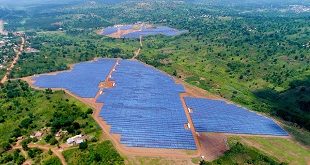
Why experts don’t know whether to celebrate or criticise
Kampala, Uganda | RONALD MUSOKE | Final agreements to kick-start production of oil in Uganda have taken over 10 years of bickering and anxious negotiation. But when they were finally signed on April 11, many watchers said they were unsure whether to celebrate or cry.
The long debated environmental dangers posed by the oil projects, including construction of a 1,440km long 24-inch wide pipeline through huge swaths of conservation territories from western Uganda to the Tanzanian port of Tanga could now become a reality. But the biggest damper on the colourful signing ceremony at State House Entebbe was its timing.
If Uganda had signed the agreements earlier in 2013, the value of its reserves would have been US$ 40 billion. Instead, it is currently valued at US$18 billion which is an over 70% drop and going down according to long term price projections by the London based Climate Policy Initiative.
These are findings from the policy think tank’s paper titled, “Understanding the impact of a low carbon transition on Uganda’s planned oil industry” which was published last December.
“The government officials can celebrate but we have joined the party when the industry has peaked and it can only go down from now,” said Don Bwesigye Binyina, the executive director of the African Centre for Energy and Mineral Policy (ACEMP), a Kampala-based non-profit that has interest in Uganda’s extractives sector.
“What this means is that we are no longer in the driving seat when it comes to negotiations. What we would have easily negotiated 10 years ago, we can’t do so now. We are coming to the party at the weakest point,” Binyina told The Independent on April 15, “Our expectations are low; largely because we thought the revenues from the oil resource would have a great effect on the macro-economy of our country.”
Emmanuel Mugarula, the CEO of the Association of Uganda Oil and Gas Service Providers told The Independent on April 15 that his members are excited but also apprehensive.
“We hope that there will not be any other bottlenecks,” Mugarula told The Independent. He said fear of other bottlenecks emerging means the biggest challenge now is how to mobilise people to come back to an unpredictable industry.
“We were told to prepare way back in 2012 because first oil was scheduled for 2015 but many people lost their money. People were frustrated and disappointed; their businesses went under while others are under receivership and many others chose to move on with their lives.”
“The lesson we learnt is that the oil and gas industry is quite unpredictable and events can move so quickly and dramatically. So members are quite cautious.”
Still, Mugarula says about 125 members of his members are registered on the Petroleum Authority of Uganda-run platform (the National Supplier Database). “The big advantage they have is that they have now acquired the skills, the knowledge and experience and many have acquired business partners at national, regional and international level.”
Despite the misgivings, the main players; President Yoweri Museveni, Tanzania’s Samia Suluhu Hassan, and Total SE Chairman and CEO, Patrick Pouyanné, were all upbeat in their remarks after the signing while the CNOOC Uganda President, Chen Zhuoubiao, chose silence over comment.
Three agreements were signed; one about hosting of the joint pipeline company formed, another about shareholding, and the third about how costs and benefits will be borne otherwise called the Uganda Host Government Agreement, the Shareholders Agreement and the Tariff and Transportation Agreement.
Following the signing, the Minister of Energy and Mineral Development, Mary Goretti Kitutu, who signed the agreements on behalf of Uganda, has remained excited. On April 13 she told the media that the government and the companies now expect First Oil around 2025.
She said signing of the agreements and the launch of the oil and gas projects, more so during the ongoing COVID-19 pandemic, are an assurance of commitment from theoil companies, Total and the China National Offshore Oil Corporation (CNOOC).
“Uganda’s oil and gas project is the only major project in Sub-Saharan Africa to be sanctioned since the pandemic started, which attests to the profitability of the projects, and the country as a favourable investment destination,” she said.
Kitutu noted that the signing of the agreements also means that there has been a de-risking of other upcoming projects including the refinery and the new exploration projects. Few observers cared about Kitutu’s exaggeration. Most were focused on the investments that are projected to flow into Uganda’s economy.
 The Independent Uganda: You get the Truth we Pay the Price
The Independent Uganda: You get the Truth we Pay the Price



I suppose if it were only multinational corporations from the West carrying out this entire process, there wouldn’t have so much misgivings and online petitions by civil societies that are bankrolled to criticize everything African.
I agree with Mss kitutu.